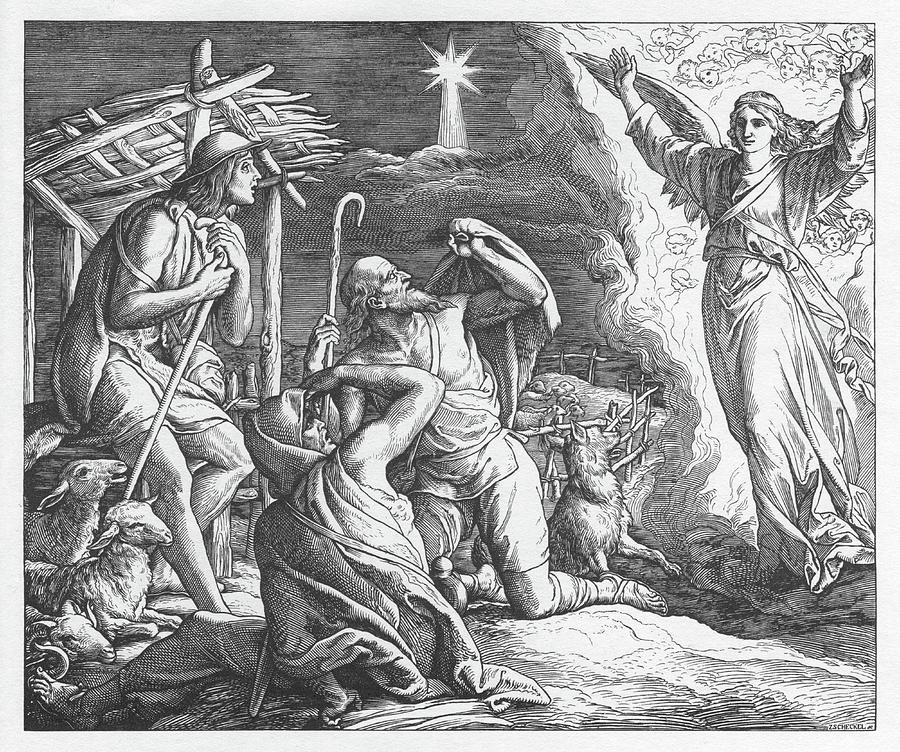This Tuesday we are gathering to read through Luke 2:1-21. This week I want us to read this passage from a different perspective than that given from a typical modern reading, especially as seen at the children’s Christmas pageant. For this week, please read the attachments from Kenneth Bailey’s Jesus Through Middle Eastern Eyes (pp 25-37) and Kurt Willems’s The Roman Empire During the Time of Jesus.
Typically, the exposition of Luke 2:1-7 is that Mary and Joseph arrived in Bethlehem alone, found all the hotel rooms booked, and therefore had to sleep in the barn. In the first chapter of Jesus Through Middle Eastern Eyes (which we previously used in our study of the parables), Bailey draws upon his childhood in Egypt and his 40-year teaching career in the Middle East to explain why the typical Western reading of Luke 2 is generally wrong. Please read this selection from Bailey, as it will form the basis for the first half of our discussion. A slightly more in-depth discussion of this issue by Bailey can be found in his article, The Manager and the Inn, published in “Bible and Spade” magazine.
The second half of the nativity story concerning the angels and the shepherds can likewise be read differently than the typical Christmas pageant portrays. Christmas angels are generally depicted as svelte, fair-complected, small-bosomed, women between the ages of 18-35 who appear to startled shepherds and sing a hymn of praise on their stringed instruments about the messiah being born. An alternative way of reading this encounter is that the army of God is making an announcement of war and rebellion against the powers of this world and specifically against Caesar Augustus.
If you know your Roman history, Octavius (who was to become Caesar Augustus) was the grand-nephew, adopted son, and heir of Julius Caesar. In 49 B.C., Julius Caesar crossed the Rubicon and assumed dictatorial power in Rome. He was assassinated on March 15, 44 B.C. Caesar’s murder plunged Rome again into civil war which was finally resolved on September 2, 31 B.C. with Ocativus’ victory over Mark Anthony at the Battle of Actium. As a result of bringing peace to Rome, Octavius was given the following titles: Caesar (king), Augustus (one who is revered, venerated, or worshiped), Pontifex Maximus (Great High Priest), Son of God (Julius Caesar had been elevated to divine status and Octavius was his adopted son), Savior (who restored peace and honor to Rome), Prince of Peace, and the Epiphanen (the manifestation of God). The proclamation of these titles was called the evangelion (good tidings, good news, or gospel). Into this political situation, the angels appear and proclaim their own good news that Jesus is Lord, savior, king, son of God, and bringer of peace – not Augustus. For the second part of our discussion, please read the attached discussion from the Anabaptist Kurt Willems, The Roman Empire during the Time of Jesus. You can also read this sermon from the Calvinist Charles Biggs on the same topic, or listen to John Dominic Crossan’s YouTube discussion on Jesus and the Imperial Titles.
As to the nature of the angels, themselves, Luke tells us that 1) they scared the shepherds and 2) the angels were a host. Shepherds aren’t easily scared. As David recounts to Saul on the eve of his meeting with Goliath, shepherds fight off hungry lions and bears with only sticks and stones and so he isn’t afraid of the giant. 1 Sam. 17:34-37. The very appearance of the angels, however, frightens these men when lions, bears, and giants cannot. Luke also describes the angels as the “heavenly host.” Strong’s concordance defines the word host as “a mass of persons or things especially organized for war, an army.” For example, the Bible describes the combined army of the Canaanites opposing Joshua as a “great host” (Jos. 11:4), or Saul’s army facing the Philistines as “host” (1 Sam. 17:20). These angels that appeared to the shepherds are an army. We see this angelic army in action in the great heavenly battle described in Revelation 12. Additionally, the War Scroll, one of the Dead Sea Scrolls written about 150 B.C., describes a similar heavenly battle in which the angelic hosts are organized into four divisions, each headed by its own angel: Michael, Gabriel, Sariel, or Raphael. Therefore, as you read through this portion of Luke’s gospel, see the angels, not as a church hand-bell choir, but as battle-scarred veterans of war that look something like this. And it is this army, legion, division, or company who proclaim Jesus as Lord and King.
Dinner is at 6. The menu is Guinness Beef Stew. Discussion at 6:45. Please read the attached excerpts from Bailey and Willems. This is our last gathering of the year. We will begin anew on Epiphany. If there is any area of study you want us to visit next year, please let me know.
… since Providence, which has ordered all things and is deeply interested in our life, has set in most perfect order by giving us Augustus, whom she filled with virtue that he might benefit humankind, sending him as a Savior (soter), both for us and for our descendants, that he might end war and arrange all things, and since he, Caesar, by his divine appearance (epiphanein) … the birthday of the God Augustus was the beginning of the Good News (euangelion) for the world …
Priene Calendar Inscription (9 B.C.).


Pingback: Epiphany – The Transfiguration, Mark 9:2-13, pt.2 – Ancient Anglican